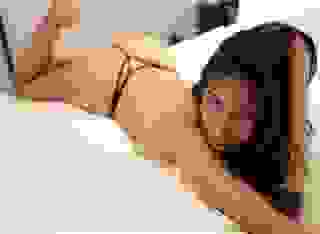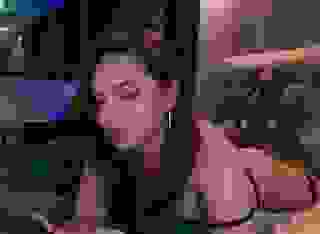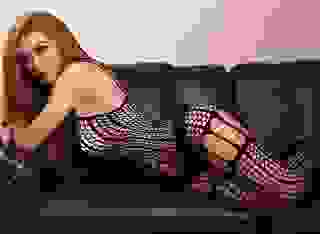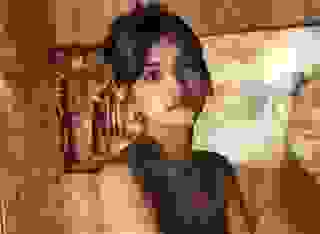- Transgender & Crossdressers
- Tribal Bonds Ch. 01
Note: You can change font size, font face, and turn on dark mode by clicking the "A" icon tab in the Story Info Box.
You can temporarily switch back to a Classic Literotica® experience during our ongoing public Beta testing. Please consider leaving feedback on issues you experience or suggest improvements.
Click hereHello Readers! It has been much too long since I last posted a story. I am so glad to be back. This is Part One of a Six-Part story. All six parts are written and will be posted in order. It takes place in the same universe as my "Sultanah" series, but you don't need to read any of that to understand this story (but you really should read it). Please, please, please let me know what you think!
Chapter 1: The Hayalet Valley
I jerked to the left and then again to the right, hard, my shoulder cracking into the iron bar. The wagon wheel had dropped suddenly into a rut on the road. My shoulder exploded in pain so sharp that it quickly went numb. I bit my lip, refuse to make a sound. It was dark, but a small slash of silvery moonlight weakly illuminated the inside of the wagon. And I could see the Kabile girl, Cilek, in the cage across from mine. I wouldn't give that whore the satisfaction of hearing me cry in pain. I wouldn't even lower myself to rubbing my shoulder. I bit my lip and at stared at Cilek stonily. She stared back and I could sense her hatred.
For the thousandth time in the last month, I cursed my family. And my tribe, the Buz, as well. While I felt nothing at all when I cursed my family, I own that it made me ache to curse the Buz. Because, while I knew that I was Kedi, the daughter of Baba of the clan Sacagi, I always simply thought of myself as Kedi of the Buz tribe. I didn't know how to think of myself in any other terms.
Now, years later, having seen more of the world than any member of Sacagi clan had ever seen before, I know that the Buz are a minor tribe. To be a Buz simply means to be Far Northerner, to sleep in tents, to be a nomad following the herds. It means to live east of the River Dere, north and west of the Giris Sea, and south of the barren lands where the snow never melts. It is to be one of dozens of Far Northern tribes who all live in the same way.
But back then, back when I was trapped in the wagon with that Kabile girl, Cilek, it meant so much more. It meant being the daughter of Buzcu. It meant to sleep under the stars even when the snows fell. It meant that I did not fear the white bears. It meant that I was one with the land that had birthed me. And it meant that that I was among the most feared warriors in the world, the scourge of the Belasi, the destroyer of the Yok, and the nightmare of the Kabus. It meant that even the professional warriors of the Ulus feared us and the legions of Bütün Dünya respected us. But more than anything else, it meant to be the bane of the Kabile.
Since childhood, I had been raised to hate and fear the Kabile, a larger tribe that dwelt on the far side of the River Dere. Our closest neighbors and most implacable enemy. We had been fighting them since long before the oldest living members of the Buz were born. Perhaps going back to the dawn of time. It is said that Buzcu, the founder of my tribe, had killed 500 Kabile warriors in a single day and captured 1,000 of their women. It is said that he sired ten children with each woman, and had that they had become the thousand tribes of the Buz.
I was taught that it was better to die of hunger than to accept the bread of the Kabile. I was taught that I was to fight the Kabile to the death, to tear at them with my hands if my axe was knocked from my hands, to commit suicide rather than become their prisoner.
And even if I hadn't been taught to hate the Kabile, I would have learned the lesson on my own. When I was 18, the Kabile had reversed the normal order of things. Rather than wait for us to cross the River Dere and raid their homesteads, the Kabile crossed in early spring, before the the full thaw. My clan was camped near the shallowest spot in the river. Watering the herds. They attacked us in the early morning before the sun rose. Our warriors were unprepared and outnumbered. But we fought bravely, nonetheless. The Kabile killed my uncle and two of my brothers in battle. They had sacked our baggage, turned loose our herds, and burned my families tent. Only the arrival of another Buz tribe, who had driven off the Kabile, saved my life and the lives of the rest of my clan and family.
I remember little of that day. It happened so quickly... I had been unable to even fight. My mother had pulled me into the trees, hid me. But, I would never forget the next day. As my clan buried our dead on the river banks. I remember looking across the River Dere in the early morning light, and then down at my 15 year old brother, the back of his head gone, his brains frozen. I simmered with hatred.
The Buz have long known the treachery of the Kabile. Kabile do kill Buz when they can. Mostly through stratagem and trickery, because one Buz warrior is the match for fifty Kabile. And we know what to do what such a tragedy occurs. We bury the dead. And we, as warriors, call for vengeance. We invoke the sacred words. That day, on the banks of the River Dere, I looked at my brother and stated those words, "I should kill 500 Kabile warriors to avenge you. But I am not Buzcu. Still, I am Buz. His blood flows in my veins. And I swear to Buzcu that for ever 100 he killed, I shall kill one. I shall kill five of the enemies of my clan. Of my family." Some men heard me and they laughed to hear the warrior's words on my girlish lips. But they knew, as I did, that the pledge being made aloud, bound me forever. I would avenge my family by killing its enemies.
But here I was, riding in a wagon with a Kabile slut. And it wasn't the result of a raid or a lost battle. No...my tribe, my family had placed me here. I, who drank most deeply from the wisdom of Buzcu, I who had said the warriors words above my brother's dashed brains. I had been betrayed by my family and my clan. By my tribe.
One month before I slammed my shoulder into my cage as the wagon jerked to a stop, my tribe had traveled to the trading post at Ticari. Ticari was, and is, a free city and recognized no authority above its own. It had no king or chief. It was run by the merchants who allowed men of all nations to trade there. Ticari was well placed for trade, right on the frontier, between the Kingdom of Ulus and the lands dominated by the Northern Tribes. The Northern tribes could bring their herds, smoked fish, and furs and trade for money, weapons, and luxuries. Being among the farthest north of the Northern tribes, Ticari is far from the Buz land. I had only been to the city once before in my life. We had to pay many tolls and crossed many rivers to reach the trading city.
I had asked, repeatedly, whether it was necessary to trade, whether the time and expense and danger of the journey was worth the trip. My father told me that our clan would be spearheading the new spring campaign against the Kabile. We had finally recovered from the battle that killed my brothers and uncle six years earlier. Ticari was desperate for our goats, for our furs, and for our salt fish. He said that the tribe had decided and that I was not to question it. But I kept asking.
When we arrived at Ticari, I was shocked to find that many other tribes were there to trade as well. Most of the far Northern tribes. Including the Kabile. I spat at them and begged my father, and the other men of my tribe, to attack them. We held a clan meeting and I begged permission to attack our enemies, who were exposed and in the open. My father seemed embarrassed by my statements. The other, so-called warriors told me that we had given our word to Ticari that we would respect their trading rules. I was told, for the first time, that there was a rule that trumped our obligation to kill the Kabile at every opportunity. We were not to attack, we were to meekly trade with the men who would murder us if they could. We were to allow them to buy weapons from the Ticari. I was disgusted, and let my disgust be known.
The next day, my tribe had taken their goods into the city to trade. Walking side by side with the Kabile. The only satisfaction I had was that the Kabile were equally cowardly. They made no attempt to attack us, though we were camped with all our goods on a plain outside of town. And we were outnumbered. I told my father about our dueling cowardice. He was not pleased. He left me outside, to tend to our herds, while he and the rest of my clan entered the gates to negotiate. He said it was because I was skilled with managing the herds. Which was true. But I knew he could sense my all-encompassing anger and was afraid that I would break the truce of the Free City. So I sat in our wagon waiting and occasionally speaking to the goats.
Some hours later, just as I was growing hungry, my father exited the city walls. I saw unfamiliar men walking with him and, at first, I had almost mistaken them for men of Kabile. But as he drew closer, I saw that they were traders. Men of Ticari or some distant land. They were large men, stern wearing strange clothes. I assumed they were going to inspect the goats. My father walked to the wagon, but his eyes did not rise to look at me. He did not speak to me. He stopped beside the mule that drew the wagon on which I sat, took its bridle. He stopped for a moment, breathed deeply, flipped his hand at me and said, "that is the one." And the he walked away. He never looked back.
Before I understood what was happening the men from Ticari were on me. They move swiftly, their arms were powerful. Suddenly there were men grabbing my legs, my arms, and one man even wrapped his arms around my throat. I screamed in terror and tried to writhe out of their grips. But their hands were like vises. They dragged me down off of the wagon. The goats panicked but no one cared. The men of Ticari began to drag me through the streets, back into the walls of the city. I continued to scream and attempted to fight, but the men barely seemed to notice me. They moved with measured ease. They had done this before and knew exactly how to hold me so that I could not escape.
Even as I was screaming, I began to understand what was happening. We had been several years without a substantial campaign. Our herds had grown and, as a result, so had our tribe. But, rather than believing this meant that the Buz were growing strong, my father had worried about what would happen in the event of a tough winter. It was all that he had spoken about of late. Other men in the clan and in the tribe had been saying the same thing. Too many mouths to feed. We were growing soft and fat. We needed to cull the weak. And we needed to raise money for a new campaign, to sharpen our warriors. I had assumed we would thin our herd in battle, let the strongest survive and the weakest die. But weak men know they are weak, and they fear to be culled. My father had come to another solution.
Ticari was a trading city. And we had come to Ticari to sell our most lucrative resource: slaves. I was my father's eldest daughter. I was known to be beautiful, but unbreakable. I would marry soon and he would have to pay a substantial dowry. Shrewdly, like a Ticari trader (and not like a Buz warrior) he had solved this dilemma. He had lost a mouth to feed without the necessary of paying a dowry. He had gained the money needed to outfit my brothers in Ticari armor. I had heard that the Buz had done such things in years past...I had never believed it actually happened. And I certainly never suspected it would happen to me.
Even before they brought me in through the city gates, I knew that I was a slave. And that my father had done it. And my tribe must have sanctioned it. I stopped fighting. At first, it was simply despair. I had never heard of a single person who had been taken into slavery who had ever returned home. They would take me far from here, so that I would not even be tempted to run. I would never see the River Dene again. I would never kiss my mother's cheek again. I would never sleep beneath the spruce trees in summer and feel the wind of the Gods' against my face. I was lost.
But I did not allow myself to despair long. I regained my feet, and mustered my dignity. My slavers released me as they sensed my calm. I was slave, but I was still a member of the Buz. My father and his men might have forgotten who they were and what that meant. But I did not. I had to comport myself with strength and dignity. Even a moment of weakness was punished by the Gods and I had already allowed myself too much. I would not allow those who had sold me to have the satisfaction of believing that I was broken. I walked to my through the streets, my head held high. I did not look at the members of my tribe. I could feel my father looking at me. And my brothers. I could feel their shame and was sustained by it.
I promised myself that I would do what no one had ever done before; I would return to the North. I would see my father pay for his betrayal. I would shame my brothers and my tribe. And I would kill five Kabile in the bargain. I would be Buz even if my family was not. I would fulfill my oath and teach them all how to follow Buzcu, and never let them forget the lesson.
These thoughts warmed me and stiffened my back as I strode through Ticari. I walked to the stall where the slavers kept their shop. I could sense the slavers' confusion as I walked. They gawked at me, let their hands drop from me. They needed no force, and did not understand it. Perhaps they'd never captured a true Buz before. I walked into my cage. And then we had headed south. Away from the Buz. Away from the Kabile and the oath I had made.
But maybe not as far as it seemed.
"I will kill five of my tribe's enemies. And I will start with you," I said now, in the darkness of my cage. It was little more than an angry hiss as the wagon shuddered to stop. The words soothed my aching shoulder, just as they had soothed me every day the last month. The girl, Cilek, I knew she heard me say it. But she didn't react. She never reacted to me. But she reeked of fear.
Cilek, I had learned her name when her own father had sold her to the Ticari slavers. He had dropped her off the night my father sold me, just a few hours later. She cried and writhed as the slavers grabbed her and threw her into the cage next to mine. Her father pleaded with her, by name, to do her duty. She cursed him, spat at him, renounced her family and her tribe.
"I am no longer Kabile," Cilek had moaned at her father. And even in my own despair and discomfort, I smirked. I would expect nothing less from her soft people. As she had been locked into her cell next to mine, I said "I will kill five of my tribe's enemies. And I will start with you." I had not thought to say them, the words came unbidden. She had glared at me, hearing my Buz accent. But I could sense her fear. And, sensing that fear, I felt truly calm for the first time since I'd been sold.
And so, from that day forward, I had reminded Cilek of my hatred at every opportunity. It had, of course, put some steel in her spine to know that I was her enemy. She did not dare cry around me. But I could sense the falseness of her courage. And so I thought of my brother and continued to torment Cilek.
As the slavers collected more and more slaves in Ticari, I continuously reminded Cilek of my oath. I repeated my oath as we left Ticari for the port of Geçi-ci, walking the long miles with harnesses around our throats and whips cracking across our backs. I repeated it again as the Ticari sold most of the slaves at the port. The prettier girls sold to the brothels, the uglier ones placed on boats for distant lands. I repeated it as Cilek and I were placed together into a wagon and led away from Geçi-ci. More slaves were sold to brothels and trading posts on the road until only Cilek and I remained. As though the Gods kept us together so that I could exact my revenge. And I repeated it now, inside the wagon, two weeks on the road and heading toward a destination I did not yet know.
"Fuck it," a loud voice from outside the wagon boomed. I recognized the voice as that of Köle, the man who drove the wagon, "The wheel has cracked and I will not be able to fix it in the low light. We must camp here." I heard groans from the other slavers...
"Shit," Topu's voice said, close. He was, it appeared to me, the one in charge of the operation. He had paid my father. He sold the slaves and the other goods. "How much farther until we are out of the valley?" he asked.
"Twelve miles," another voice called out.
"Shit," Topu repeated. He sounded anguished, which was strange. He had never before shown any concern about speed. "Get the slaves out," he said, almost dejected, "it will be cold tonight. They will freeze in there." I tensed. I did not like leaving my cage. I did not trust the slavers. Nonetheless, the wagon door was thrown open a few moments later and I was blinded by moonlight. Cilek was freed first, a chain was attached to her ankle. I was freed next and attached to the same chain. We were both then attached to the wagon itself. We could not move more than three feet away from one another and no more than ten feet from the wagon.
My eyes rapidly adjusted to the moonlight. I looked around and saw that we had stopped in the center of a narrow valley. To the south, just a few yards from where the wagon rested was a thin, slow-moving river. It wound to the west, as far as I could see in the gathering darkness. I knew now that the valley ended 12 miles forward in that direction. Across the river to the south I could see fertile grasslands stretching off into the distance. I could not tell how wide the valley was, but I could see mountains rising in the distance. To the north, the there was a few hundred yards of lush grasslands as well. But in that direction, I could see heavily wooded foothills rising up towards other mountains. Behind me, to the east, was more of the same: grasslands (wider to the south than the north) and mountains growing up on either side.
"Twelve fucking miles," Topu repeated. I could see him now. He was starting a fire at clear spot a few feet from the wagon. It was already cold and I moved towards the site where the fire would be. There was a log nearby, I yanked Cilek towards me and we sat down. Soon the fire was blazing and I was warmed. Topu and Köle prepared the camp site as we sat. The other slavers and traders secured their horses and their wagons as well. Seven men, in all. Soon, they were bringing wood to the fire, making it larger. One man began to and others assembled tents.
Once the camp was set up, the men began to crowd around the fire. Clouds had moved across the moon and I felt colder. Soon the meal was finished, some sort of grilled meat. Cilek and I were fed first. The slavers and traders ignored me and Cilek. I found this all strange. They didn't make us work. They fed us well. What sort of slaves were we to be? I thought it over as I ate, but I didn't know that I wanted the answer.
The entire meal, Topu seemed distracted. While the other men talked, joked, and fought, he sat in total silence. He bit his lower lip and swiveled his head around constantly. Every little noise seemed to make him jump. I watched him uneasily. Topu was a large, brusque man. I had never seen him even slightly ill at ease. He was commanding, brash, confident. He was every bit a leader. I found his behavior off-putting. I was not the only one who noticed.
"I never figured you for a superstitious one," Köle barked in a harsh laugh. He said it loudly, over the din of the crowd. It was clear that he wanted everyone in the circle to hear. Topu raised his head and looked at the other man. I had perceived tension between the two men before. I had been trying to think of a way to use that tension in order to escape. The longer they took me along this road, the further I got from Buz. My ears pricked up at the first signs of conflict. I kept my eyes flat, my body limp, and my attention razor sharp.








